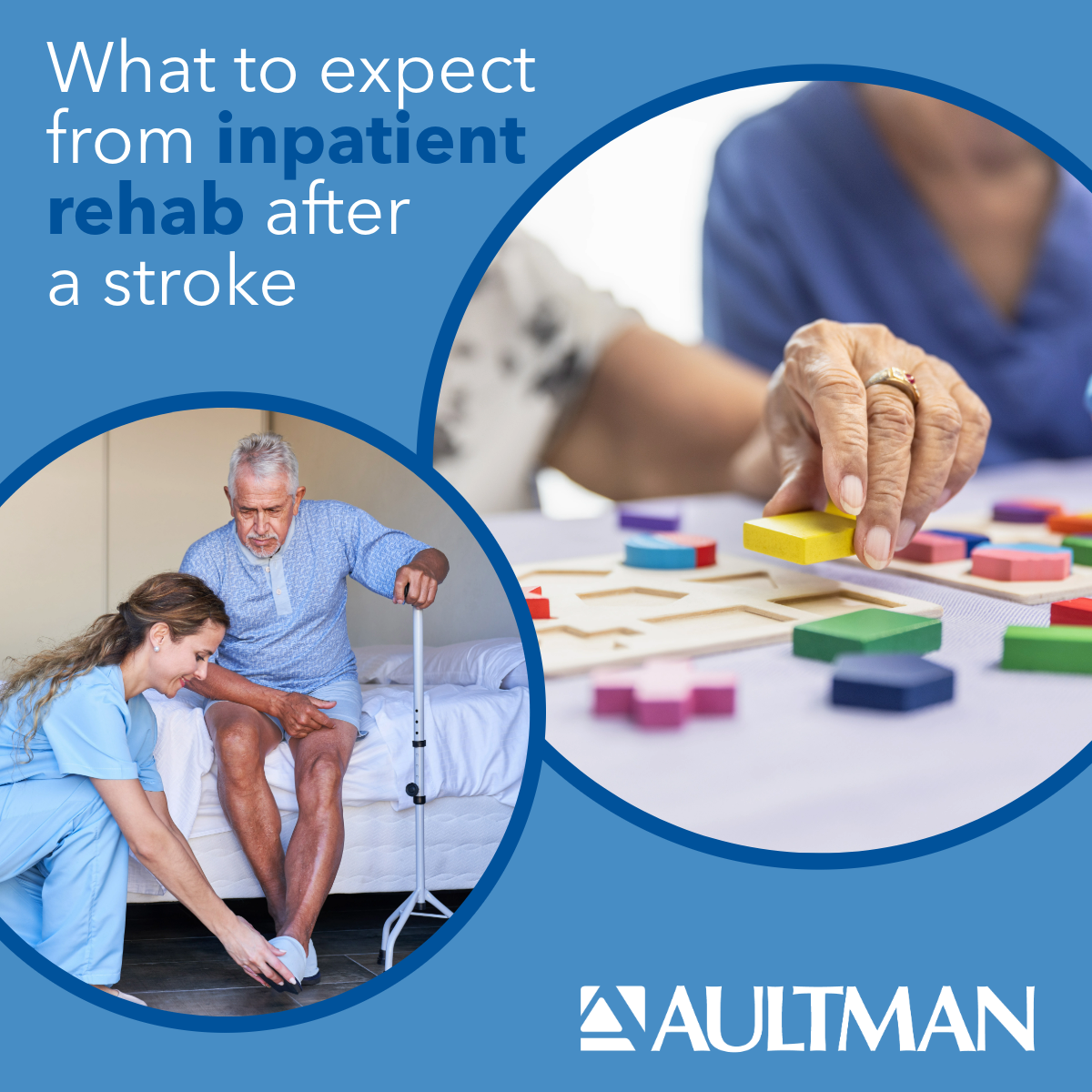

330-452-9911 (Aultman Main)
Patients & Visitors

- Patient Support
- My Experience
- Join Our Grateful Community
- Nondiscrimination & Language Services
- Patient Nutrition
- Patient Portal
- Patient Privacy
- Patient Medical Records
- Patient Rights and Responsibilities
- Patient Welcome Folder
- Tests & Procedures
- Contact Us
- Visitors
- Contact a Patient
- Aultman Anywhere App
- The Shoppes at Aultman
- Visitor Policies
- COVID-19 Information
- Parking and Maps
- Dining Options
- Things to Do
- Insurance and Billing
- Pay My Bill
- Insurance
- Financial Assistance
- Pricing
- FAQs
- Notice to Our Patients of a Privacy Incident
- Notice to Our Patients of a Privacy Incidents
Services

- Medical Services
- Back & Spine Center
- Birth Center
- Cancer Center
- Critical Care
- Emergency
- Heart & Vascular
- Mental Health Services
- Neurosurgery
- Orthopedics and Sports Medicine
- Stroke
- Surgical Services
- Urology
- Support Services
- AultmanNow
- Aultman Specialty Pharmacy Services
- AultWorks
- Case Management
- Clinical Trials
- Diabetes Education
- Grief
- Home Medical Supply
- Home and North Infusion Services
- Home Health Care
- Hospice/Palliative Care
- Imaging
- Inpatient Rehab
- Integrated Health Collaborative
- Lab
- MEDS Clinic
- Pain Management
- Security
- Sleep Services
- Spiritual Care
- Therapy
- Urgent Care
- Victims of Violence - Forensic Nurse
- Withdrawal Management
- Wound Care
Health & Wellness

About

- Aultman
- About Aultman
- Careers
- Diversity, Equity, Inclusion and Belonging at Aultman
- Newsroom
- Our Policies
- Annual Report
- Community Health Needs Assessment
- Sharon Lane – An American Heroine
- Aultman Corporate and In-kind Sponsorships
Locations

- Locations
- AultCare
- Aultman Alliance
- Aultman Carrollton
- Aultman College
- Aultman Dover
- Aultman Hartville
- Aultman Hospital
- Aultman Louisville
- Aultman Massillon
- Aultman Medical Group
- Aultman North
- Aultman Orrville
- Aultman Orrville Doylestown Health Center
- Aultman Tusc
- Aultman Tuscarawas Regional Health
- The Aultman Foundation
- Aultman Woodlawn
Schedule an Appointment
*Please fill in all the required fields.
- Home >
- Blog >
- Caring For You >
-
Inpatient Rehab After a Stroke
Menu

Recent Posts
- Holiday Toy Safety
- Grateful Student Story: Tina Stewart
- Wash Your Hands: It Really Works!
- Volunteer Spotlight: Lori Pasch and Shelby
- Recipe: Almond Butter Chocolate Chip Cookies
Archive Posts

Location Finder
Here's your guide to finding any of the facilities in the Aultman family of health services, including maps and contacts.

Need a Doctor?
Aultman's network of providers is committed to high-quality patient care.

Schedule an Appointment
Click below to complete an online form.
Donate Today
You can help support and enhance services, and in turn, help patients and their families who benefit from care received at Aultman.

Inpatient Rehab After a Stroke
May is National Stroke Awareness Month. Throughout the month, we have shared information on how to reduce your risk for a stroke and what to do if you suspect you or a loved one are experiencing a stroke.
Today, Angie Eaton, director of post-acute therapy services at Aultman, discusses what to expect from inpatient rehab after a stroke.
After a stroke, patients often need a short stay in a rehabilitation facility, such as the Comprehensive Medical Rehabilitation Facility located on the Aultman Woodlawn campus, before going home. There, they participate in an intense program that addresses their medical needs and functional recovery.
The program consists of around-the-clock nursing care, visits from a doctor at least three times per week and intense therapy for at least three hours per day on five days per week. In therapy, patients work on the functional activities needed to be able to return to their home and take care of themselves. Therapy might include the following:
- Mobility training. Learn to get out of bed, out of the chair and walk with a device.
- Neuromuscular re-education. Retrain the brain, nervous system and muscles to work together so the patient can be as independent as possible.
- Cognitive therapy. Improve thinking skills such as memory, problem solving and safety awareness.
- Communication strategies. Improve speaking, listening and comprehension.
- Adaptive equipment. Learn to use equipment to help with self-care tasks such as bathing and dressing.
Inpatient rehabilitation staff also work with the patient on:
- Swallow therapy. Bedside assessments and/or imaging help determine the safest diet and any strategies needed to prevent choking or aspiration.
- Home assessment and modification. Therapists visit the home with the patient and their family to identify equipment and strategies that will make the discharge to home as safe and comfortable as possible.
- Caregiver training. Inpatient rehabilitation staff works with caregivers early and often throughout the rehab stay so they can continue providing care for their loved one after leaving rehab.
The first three months after a stroke are the most important for recovery. Specialists say that patients see the most improvement during this period. Optimizing that time with two to three weeks in an inpatient rehabilitation program gives the brain and nervous system the best chance for recovery. The goal of inpatient rehabilitation is to restore function as much as possible and to develop strategies to maximize your independence.

Location Finder
Here's your guide to finding any of the facilities in the Aultman family of health services, including maps and contacts.

Need a Doctor?
Aultman's network of providers is committed to high-quality patient care.

Schedule an Appointment
Click below to complete an online form.
Donate Today
You can help support and enhance services, and in turn, help patients and their families who benefit from care received at Aultman.